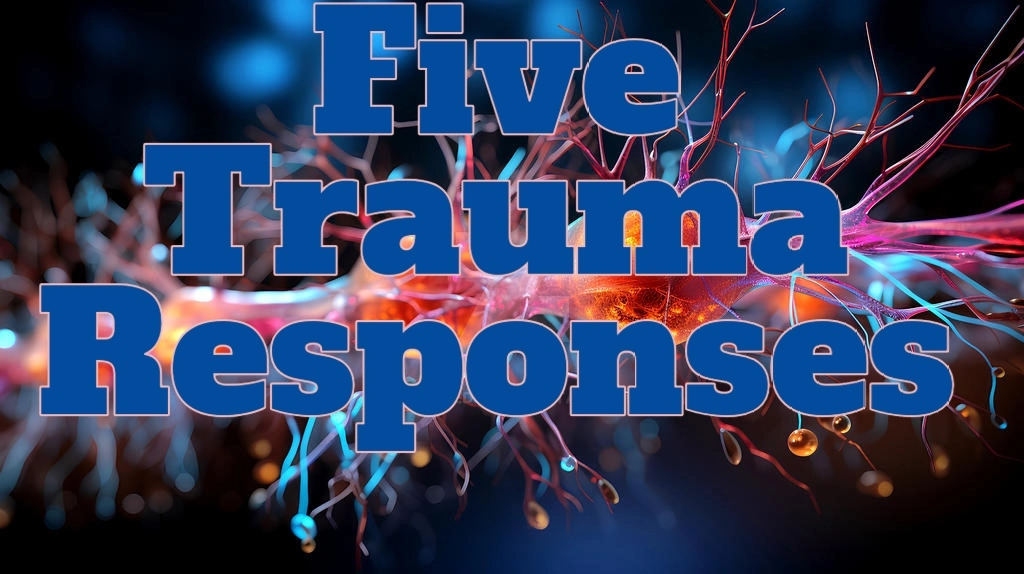By sexual development, I’m discussing the development of children’s relationship to sex, sexual behaviors, relationship to their body, and relationships with others. This will help you to understand what is normal for children to do when it comes to sex and how parents can best guide them.
Birth to Preschool (0-4)
Normal Behaviors
- Asking about other people’s bodies
- Asking questions about their own body and bodily functions
- Discussing differences in the sexes and bodies
- Showing their body parts to other children
- Talking about their own body and bodily functions
- Touching their bodies including genitalia
- Walking around without clothes, lacking inhibitions
Non-normative Behaviors
- Any aggression or violence towards self or others
- Any sexual engagements with adults
- Being shown pornographic images by other children or adults
- Compulsive behaviours or questions
- Engaging in adult-like sexual contact with other children (making out or penetration of genitals)
- Engaging in sexual behavior with significantly older, more powerful or larger children
- Knowing specific sexual acts or explicit sexual language.
- Masturbation to the point of harm mentally and/or physically
- Thoughts, words, and acts that cause distress to self and others
Early School Age (5-7)
Normal Behaviors
- Attempting to see other people when they are naked or undressing when not appropriate
- Playing games like doctor or family
- Purposefully touching their private parts. Occasionally in the presence of others
- Mimicking dating behaviour (such as kissing, cuddling or holding hands)
- Talking about private parts and using “naughty” words, especially when they don’t understand the full meaning
Non-Normative Behavior
- Any Aggression or violence towards self or others
- Any sexual engagements with adults
- Anything sexual that is tied to other forms of peer abuse (bullying or abusive friends)
- Behaving sexually in a public place or through the use of phone or internet technology
- Being shown pornographic images by other children or adults
- Compulsive behaviours or questions
- Engaging in adult-like sexual contact with other children (making out, grinding, touching genitals to genitals or penetration of genitals)
- Knowing specific sexual acts
- Masturbation to the point of harm mentally and/or physically
- Sexual “games” or other sexual behaviour with children who do not share the same social power, age and/or size
- Thoughts, words, and acts that cause distress to self or others
- Usage of pornography
- Situations where either party forces secrecy
School Age (8-12)
Normal Behaviors
- Mimicry of what they have seen older siblings or characters do on dates
- Having crushes and thinking people are cute or hot
- Looking at pictures of people they think are attractive, at the older end children might google terms like “naked women”
- Playing games with children their age. Like truth or dare or family
- Viewing/listening to semi-sexual content in media in television, movies, games or music
- Wanting more privacy and developing stronger boundaries with parents
- Self-stimulation in private is may continue
Non-Normative Behaviors
- Any aggression or violent actions toward self or others
- Any actions that are tied to other forms of peer abuse
- Attempting to interact sexually with adults
- Behaving sexually in a public place or through the use of phone or internet technology
- Being shown heavy pornographic images by other children or adults
- Compulsive or obsessive thoughts around sex
- “Dating” that crosses into adult-like behaviours (making out, touching genitals or breasts)
- Engaging in adult-like sexual contact with other children (making out, grinding, touching genitals to genitals or penetration of genitals)
- Knowing specific sexual acts and graphic information
- Usage of heavy, graphic or violent porn or using it regularly
- Sexual “games” with children who do not share the same social power, age or size
- Situations where either party forces secrecy
Middle School (13-14)
Normal Behaviors
- Dating including cuddling and kissing partners
- Feeling awkward about their body
- Playing Spin the bottle and similar games
- Masturbation
- Wanting complete privacy
- Starting to want to look attractive to other people
- Finding and talking about people they think are hot
- knowledge of sex via sexual education and conversations with others
Non-Normative Behaviors
- Any aggression or violent actions toward self or others
- Any actions that are tied to other forms of peer abuse or intimate partner violence
- Attempting to interact sexually with adults
- Behaving sexually in a public place or through the use of phone or internet technology
- Compulsive or obsessive thoughts around sex
- Penetrative sex (including with any body part or object)
- Usage of heavy, graphic or violent porn or continual usage
- Sexual or romantic interactions with children who do not share the same social power, age or size
- Situations where either party forces secrecy
Interventions
If You find a child engaging in “normal” sexual actions like playing doctor with other children
- Stop them without displaying anger
- Have them get dressed/fix their clothes
- Red direct their attention to another game
- Later on, ask your child why they were doing that, listen for any signs of shock or graphic language
- Ask if this is the first time they played a game like that, and if not how often
- Teach them touching other’s genitals or without their clothes on is not safe or okay
- Continue to watch behaviour for them doing more sexual acts and/or trauma (Informational Article: Signs of Sexual Abuse)
Normative Sexual Play & Trauma
Even so-called normal sexual activity for minors can be traumatic. So even things that might be normal at a developmental point can break of the window of tolerance and be deeply overwhelming. When we become overwhelmed it can dysregulate and traumatize us. Any sexual exposure can cause us to suffer from traumatic stress.
Anything we are exposed to while we develop will also alter our sexual development and influence how we will behave and think when it comes to sex as adults.
Appropriate Sexual and Social Education and guidance
0-2 Years
- Help them learn consent, like knowing it’s okay to say no to being touched
- Help them set boundaries for when they can do things like touch their bodies or be naked
- Teach about body parts and their proper names and basic functions of our body parts. This includes words like penis and vulva
- Model appropriate behaviour with your own body and relationships
- Don’t expose yourself to our child
- Ask to touch (ie hugging) your partner, siblings and loved ones
- Don’t engage overly sexually with your partner in front of children
- Keep the door closed during sexual activity
- Talk positively about your own body
- As they get older explain what you are doing when maintaining the child’s hygiene
2-5 Years
- As they ask teach them the honest basics of where babies come from without describing anything unnecessarily sexual
- Remind them that making babies is something adults do
- Continue to model proper behaviours with your own body and with other’s
- Explain what you are doing when maintaining hygiene and let them do that they are capable of themselves
- Expose them to relationships and families that don’t look like their own (Racially, gender of parents and gender of children)
- Foster openness around talking about the body so they know they can always talk about their bodies with you
- Help them continue to learn autonomy and boundaries. They get to say who gets to touch them including “normal” things like hugging
- Help them learn that others have the same boundaries and privacy
- Help them to notice the way emotions are carried in the body
- Let them know conversations about bodies are for at home and with medical professionals
- Let them know that they can touch their genitals but it must be in private and not around others. Set ground rules without shame
- Make sure they know you support their gender expression
- Teach them that bodies are diverse and that is okay
5-8 years
- Be honest and informative when they ask about sex. You also should explain words they may have heard at school or on TV and give the scientific language without giving graphic sexual acts.
- This includes how babies are made, without describing what you physically due
- Ensure they know that sex is an adult activity and that they shouldn’t try to do it with others
- Explain the changes of puberty as they get closer (puberty may start early as 10)
- If they have internet access even with your parental controls let them know if they find any images of naked bodies that’s something some adults will do but that it will hurt kids (no matter your personal stance on porn being frank but cautionary is essential)
- Let them know that they may feel good if they touch themselves and that’s okay but it should be done in private and not shown to others
- Let them know crushes are normal but relationships are for older people
- Reinforce body diversity and self-compassion around the body
- Reinforce bodily autonomy and refusal of anything they don’t like, Ex: saying “Stop, I don’t like that”
- Reinforce how to take care of their body and self-care
- Reinforce that they get to decide who get’s to interact with their body
- Support your child’s gender expression
- Teach basic knowledge of the internal reproductive organs – uterus, ovary, fallopian tubes, urethra, bladder, bowel.
- Teach them what words to use when talking about body parts (both female and male) – penis, testicles, scrotum, anus, vulva, labia, vagina, clitoris, uterus and ovaries.
- Talk about relationship diversity around different sexualities
- People may date and marry anyone of any gender and race
- That people have different genders and sexualities
- that’s okay to have a crush on all genders
- Talk about what love and dating are as they will be seeing it in movies tv and in general life
9-12 years
- Continue discussing and reinforcing bodily autonomy and boundaries. As people start to think about dating this is crucial
- Continue modelling proper behaviour in your own relationships
- Explain physical changes expected with puberty for both sexes so they understand their siblings and peers
- People who will menstruate need to know how to prepare for their first period and explain the options for pads, tampons, and cups. Discuss the hygiene required so they will be ready to have things like pads and Menstrual cups and can avoid things that harm their bodies.
- People with penises and testicles need to know about ejaculation and wet dreams, that their normal and the required hygiene around it.
- That fertility happens once people start having periods or start producing semen. IE. both dyadic sexes are able to have babies after they have reached puberty.
- Explain the social-emotional changes of puberty
- That once puberty starts, they will slowly start to feel more sexual and develop romantic feelings towards their peers.
- How to be cyber smart and to use their mobile phone safely.
- That sexuality is exaggerated in pornography.
- More details about sexual intercourse and other sexual behaviours.
- Basic information about STIs (Sexually Transmitted Infections) as they may hear about them – sometimes you can catch infections when you have sexual intercourse but there are ways to make sex safer.
- Basic information about how to avoid pregnancy
Middle School and Above
- Centre yourself as a resources and support network instead of an instructor
- Continue modelling healthy relational behaviours
- Give more information about healthy sex should they need it
- Let them dress how they want but watch for hypersexualization and try and talk about it should it arises
- Make sure they know that while you will be okay if they do have sex that they do not have to
- Reinforce bodily autonomy by giving them space and reminding them should they struggle you’re there for them
- Support their gender and sexual orientation
Citations:
Hakanson, C. (2018, January 03). My Kid Needs to Know What? An Age By Age Guide to Sex Education – And What to Do! (K. Young, Ed.). Retrieved August 17, 2020, from https://www.heysigmund.com/kid-needs-know-age-age-guide-sex-education/
., S. (2013). [Stages of Development Continued]. Retrieved August 17, 2020, from http://missnassunasclass.weebly.com/physical-development.html
Seller, W. S. (2018). Ages and Stages of Sexual Development. Retrieved August 17, 2020, from https://pubertycurriculum.com/wp-content/uploads/2018/06/2_AgesAndStagesSexualDevelopement-Late_Flyer_HR062018nc.pdf
Wurtele, S.K. and Miller-Perrin, C.L. Preventing Sexual Abuse. University of Nebraska Press. Lincoln, NE. 1992
Five Trauma Responses
The trauma responses are neurophysiological; they are not bad or good. They happen without us choosing what to do. These responses help us survive. Healthy activation of these stress response systems is predictable, moderate and controllable. (Gobbel, 2023). When it’s not it dysregulates us and can cause trauma
Coping Skills: Panic Attacks
The structure of this advice was based on the article by HelpGuide.org Panic attacks are stressful, overwhelming and can become disrupting to normal life. They are relatively common, even more so for those of us with a history of trauma. They are manageable and you can reduce their occurrences and manage them better when they…
Symptom Explainer: Panic Attacks
Panic attacks are episodes of severe overwhelming fear. Symptoms develop fast and reach their peak within 10 minutes. They rarely last more than an hour, typically lasting for 20 to 30 minutes.



